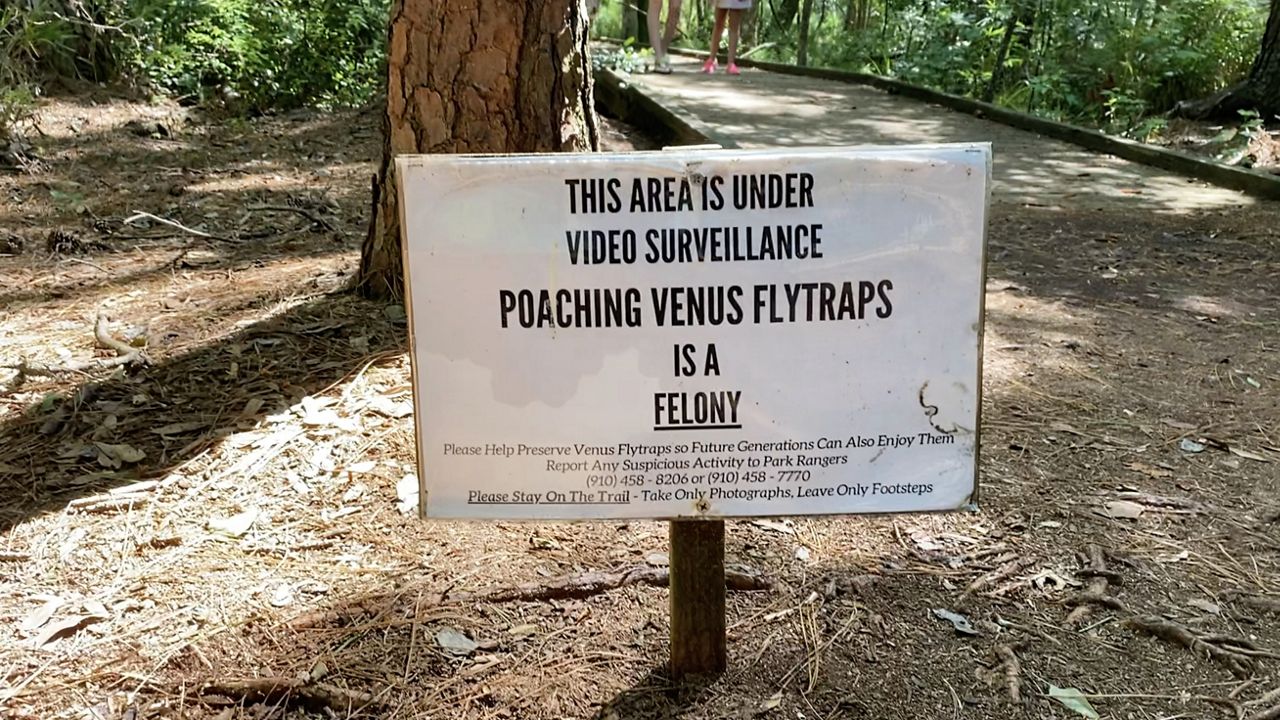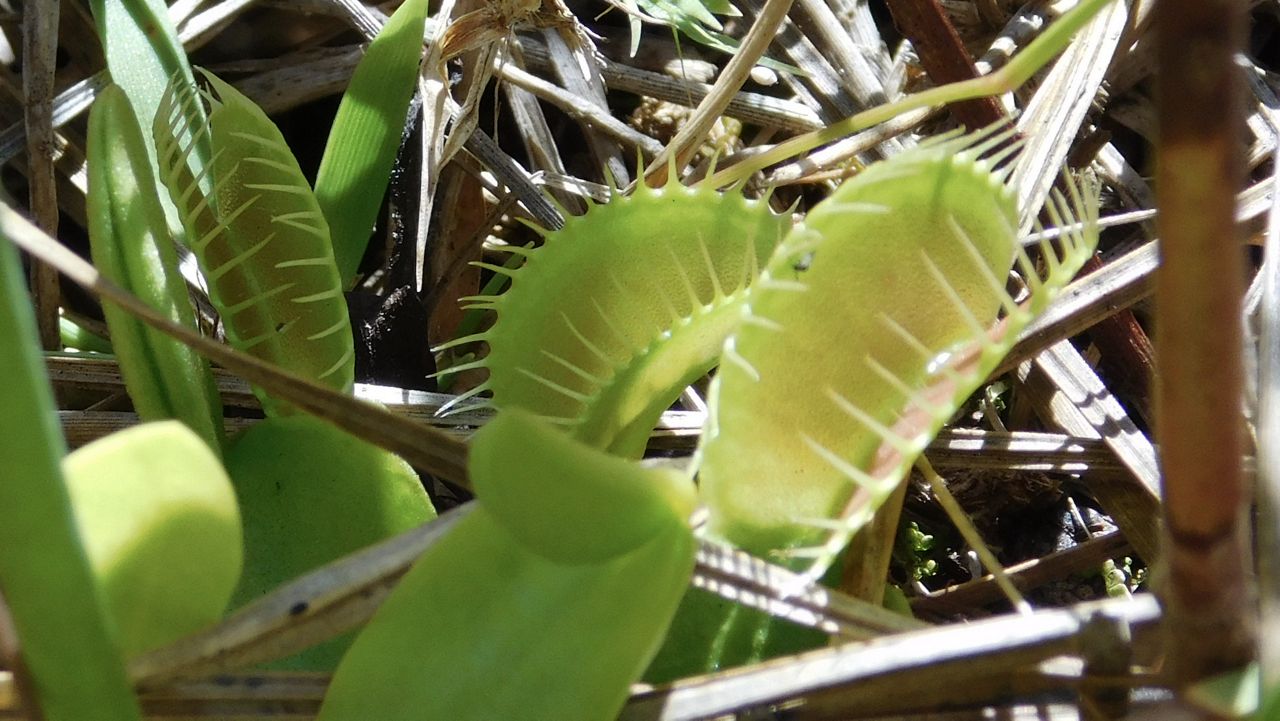The Venus flytrap is a small, carnivorous plant with a big reputation. It is only found in the wild in the southeast corner of North Carolina and into South Carolina.
The U.S. Fish and Wildlife Service on Monday said it would not list the rare plant as threatened or endangered under the Endangered Species Act. The agency said the Venus flytrap population is stable and the plant is already protected under North Carolina law.
“Based on a review of the best available science, it was determined that the carnivorous plant is not facing an imminent threat of extinction now or in the foreseeable future and therefore does not warrant listing under the Endangered Species Act,” the agency said in a news release Monday.
State law makes it a felony to take Venus flytraps from the wild in North Carolina. The Fish and Wildlife Service said it expects the protections and management of the rare plant won’t change.
“Habitat protection and management, abundant partner involvement, academic research and data from a new status survey helped inform these findings,” said Mike Oetker, with the Fish and Wildlife Service.

“With 98% of the known Venus flytrap plants occurring in healthy populations, projections indicate it can thrive under current conditions well into the future,” he said.
Venus flytraps are small plants that grow in longleaf pine wetlands in the sandhills and coastal plain. The native North Carolina plants have a global reputation and are raised and sold in nurseries and garden stores around the country.
The naturalist Charles Darwin studied the plants, calling the Venus flytrap “one of the most wonderful plants in the world” in an 1875 book.
The Venus flytrap is a small plant. It’s far from what people might expect after seeing the campy 1980s film “Little Shop of Horrors,” which starred a massive, ravenous talking flytrap.
In reality, the iconic plants can be hard to spot in the wild. They are small and can thrive only in very specific conditions. The flytrap has modified leaves that open like a mouth, with two kidney-shaped lobes. There are small hairs in the trap that sense when a bug lands between the lobes, which will snap shut to trap the insect.
One of the most popular places to find Venus flytraps in the wild is at North Carolina’s Carolina Beach State Park, not far from Wilmington.
Rangers at Carolina Beach State Park offer guided tours of the park’s different carnivorous plant species every Saturday until November. People can also see Venus flytraps by walking the park’s Flytrap Trail, a short loop with several flytraps and other carnivorous plants along the boardwalk.
The main threats to Venus flytraps are development and fire suppression, according to the Fish and Wildlife Service. Wildfires and controlled burns are an essential part of maintaining the right habitat for Venus flytraps.
The agency has been considering listing the plant under the Endangered Species Act since 2016. Researchers have been looking at the population and studying the habitat for the seven years since, leading the Fish and Wildlife Service this week to conclude that the Venus flytrap does not need federal protection.





